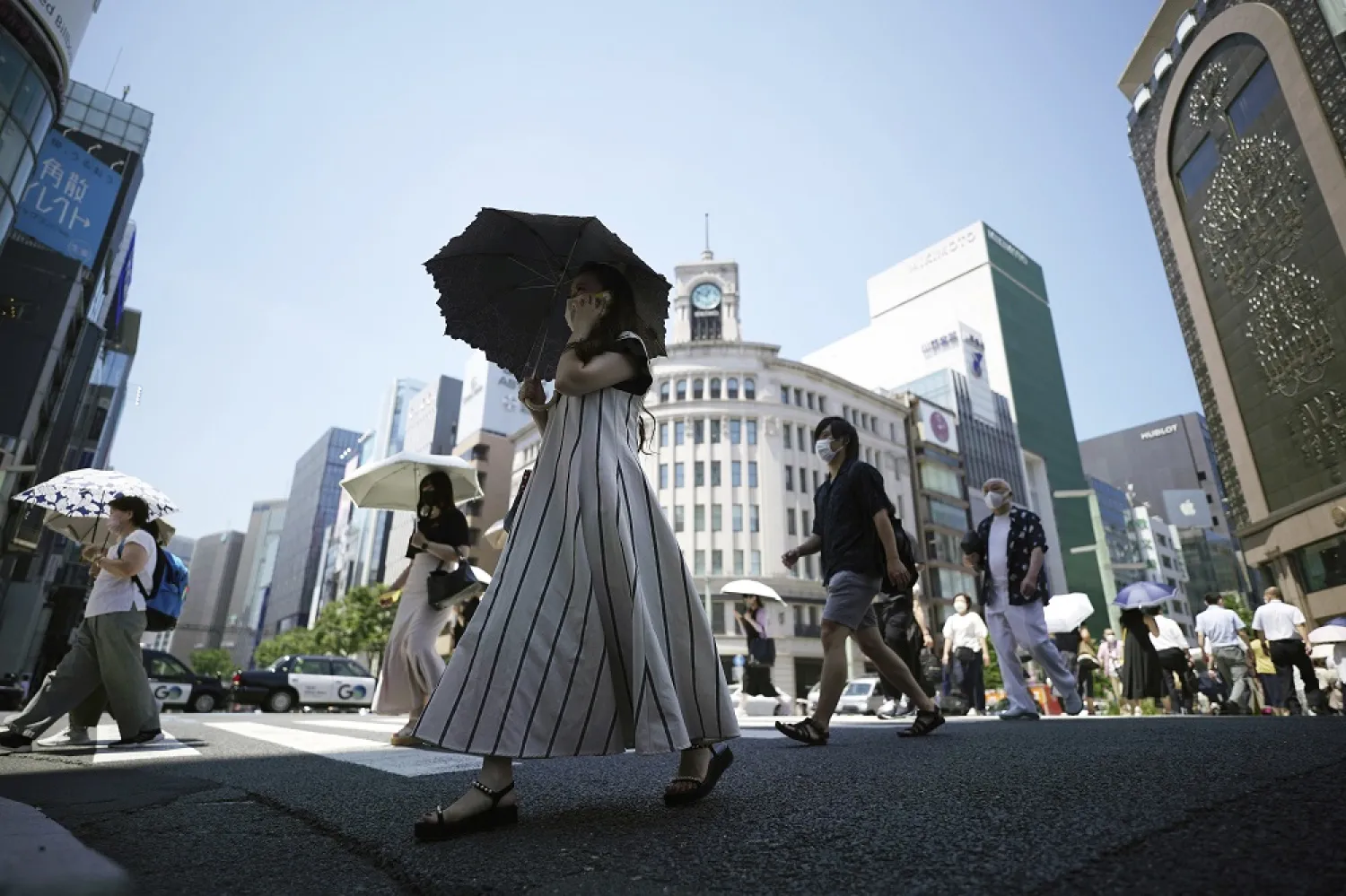Japan baked under scorching temperatures for a fourth successive day on Tuesday, as the capital's heat broke nearly 150-year-old records for June and authorities warned power supply remained tight enough to raise the specter of cuts.
The heatwave comes less than two weeks before a national election in which prices, including the cost of electricity, are among key issues picked by voters in opinion polls that show the government's approval rating slipping - with politicians including Tokyo's governor urging power price cuts.
A high of 34 C was predicted for Tokyo on Tuesday, after three successive days of temperatures topping 35 C - the worst streak of hot weather in June since records began in 1875.
Cases of hospitalization from heatstroke rose early in the day, with many in the capital continue to flout government advice by continuing to wear face masks outdoors - a legacy of more than two years of the COVID-19 pandemic.
For a second day, authorities asked consumers in the Tokyo area to conserve electricity to avoid a looming power cut. The heatwave comes less than two weeks before a national election in which surging prices - including electricity - are rated the top concern for voters in opinion polls that show the government's approval rating slipping.
As of 9 a.m. local time (0000 GMT), 13 people had been taken to hospital with suspected heatstroke, Fuji News Network said. At least two people are believed to have died from heatstroke, media said, prompting authorities to moderate their calls for power saving.
"Apparently there are some elderly people who have turned off their air conditioners because we are asking people to save energy, but please - it's this hot - don't hesitate about cooling off," trade and industry minister Koichi Hagiuda told a news conference.
The reserve ratio for Tokyo during the evening (1630-1700) on Tuesday was expected to fall below 5% as of Monday evening, close to the minimum of 3% that ensures stable supply, in Tokyo and eight surrounding prefectures. Reserve capacity below 3% risks power shortages and blackouts.
On Tuesday, the Ministry of Economy, Trade and Industry (METI) said predictions had improved slightly, but still called for consumers to be economical with power use.
Monday's warning prompted government offices, including METI, to turn off some lights in the afternoon and evening, with METI halting use of 25% of elevators in its building.
Electronics stores took similar steps, shutting off televisions and other goods on sales floors that would normally be kept on to lure buyers, and some Tokyo residents said on social media they were turning off all appliances not in use.
But politicians began to call for further steps.
Tokyo governor Yuriko Koike attended a meeting of Tokyo Electric Power Co (TEPCO) shareholders on Tuesday, later saying she had called for price cuts, Fuji News Network reported. TEPCO provides power to the greater Tokyo region.
Though expected to do well in the July 10 election for the upper house of parliament, Kishida's ruling party faces headwinds from rising prices, worsened by a slide in the value of the yen that makes imports more costly.
The Kishida cabinet's approval came to 50% in a voter survey conducted by public broadcaster NHK on June 24-26, down from 55% last week.
Natsuo Yamaguchi, head of the junior partner in Kishida's coalition government, warned on Monday in a campaign speech that citizens were risking heatstroke by trying to economize on power.
"What I would really like is for the government to tell power companies to lower costs," he was quoted by Kyodo news agency as saying.
"I'd like to contact the prime minister, who's currently visiting Europe," he added - a reference to Kishida's attendance at the G7 summit, meaning the premier is out of the country during an election campaign period, a significant departure from usual practice.









